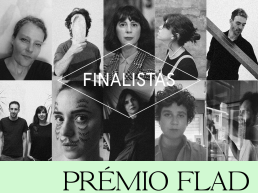He started at the Theater when he was 16. Since then it has been six decades, but he continues to have the energy and enthusiasm with which we have become accustomed, with a new show at Politeama. Our guest this week is Filipe La Féria, the director who was once an actor, playwright and entrepreneur, who brought musicals to Portugal, even when some told him that he would never succeed and that he only returns to Earth if he goes to Broadway. St. Peter’s warned.
Filipe La Féria is one of those names that any Portuguese know. He wrote and staged Amália, who was on theaters for six years, and has adapted great works with considerable success, such as the musicals My Fair Lady, Jesus Christ Superstar and The Sound of Music, but his career is long, full of adventures and with many stories to tell.
Among them, is the recommendation they made him never bring the musicals to Portugal. The Portuguese public wouldn’t like it, they told him. But Filipe La Féria did not hear, made his own adaptation and today is not only recognized for this in our country, but even became a case study in theater schools in New York.
“They even advised me never to produce musicals, because they thought the Portuguese didn’t like musicals. But I knew that the great tradition of the Portuguese was the operetta and when we talk about Vasco Santana and Mirita Casimiro, Vasco Santana was an operetta actor. There was also a large turnout for this theater. While the musical is a story that unfolds dramaturgically – there are characters, there is action, there is conflict – in Revista is very different. Revista is frameworks, the so-called rabulas, so the actor has three, four minutes to show it’s worth.” – Filipe La Féria.
Broadway is your dream world. A world he only met after getting acquainted with the great musicals in London’s West End, but which today, he says, is where he wants to reincarnate, if he gets the chance.
“The Americans, and especially the Broadway Theater, explored and enriched, with extraordinary songs and, above all, brilliant composers. They did a very American show, which is very different from the English musical. Very rooted in its own history, in the history of America. It also has its social criticism, but develops almost a teaching of what is American history itself. (…) The first time I went to New York, I called a cab and said, “Take me to Broadway.” I just want to see Broadway. In fact, if I come back to earth, I already told St. Peter I won’t come unless I go to Broadway. In reality, Broadway is a dream world, it’s a bit like Disney and Hollywood. These are extraordinary dream machines.” – Filipe La Féria.
About the Theater in Portugal nowadays, the lack of audience in the rooms and the social pressure that leads to reprisals by those who make or say something less positive, Filipe La Féria addresses the issue a little as he did when he was told that musicals would never succeed in Portugal: Ignoring.
“I think it’s ridiculous. There is a lot [uma política de cancelamento e represália]. At my age, I’m perfectly in the middle of this. I’ve never been a reactionary person, I’m concerned about the human being and the great values of the human being. And freedom, because the Theater is freedom. (…) Making theater without an audience, it’s not theater. It may be a conference, it may be a very interesting monologue or a colloquium, but it’s never theater. The Theater lives on communication, from the delivery of the actor to the public and the public to the actor.” – Filipe La Féria
Don’t miss this episode, already available on the platforms where you normally listen to your podcasts. You can also find this episode in the links below.
Related Posts
23 de July, 2024
Inês Thomas Almeida next FLAD/Saab Visiting Professor at UMass Lowell
Musicologist, she holds a PhD in…
3 de July, 2024
B+S Bispo D. Manuel Ferreira Cabral School, from Madeira, wins Atlântico Junior Award
Students win with a project to create…



